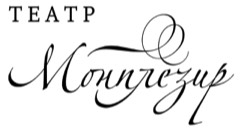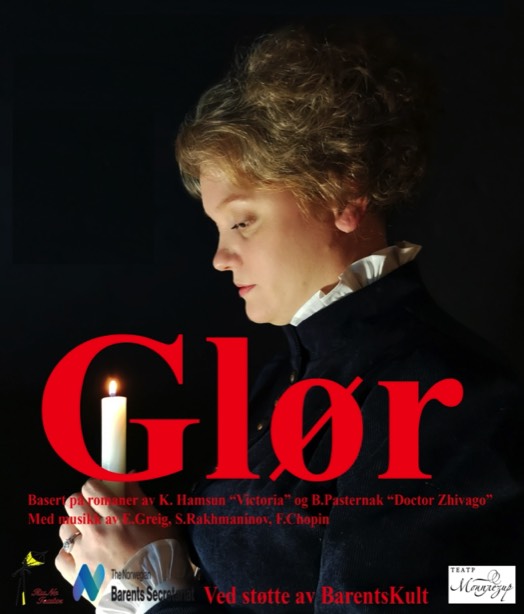RuNo Teater (Tromsø, Norway) and Monplesir Teater (St. Petersburg, Russia) Two languages, two cultures, two countries and two eras in a monologue played with live performance of classical Norwegian and Russian music, b.a. Rachmaninov and Grieg.
Love, what was it?
A wind whistling in the roses, no - it's a flame burning in the blood. Love was hellish music that makes even the hearts of old people dance. It was like daisies, it bloomed at night. It was like an anemone, closing in on a breath and dying when touched. Such was love.
Knut Hamsun and Boris Pasternak, both Nobel Prize winners, these two names are connected with invisible threads in the history of literature at the beginning of the 19th and 20th centuries. Pasternak greatly appreciated Hamsun's genius, and his characters in the novel Doctor Zhivago read Hamsun's novel Victoria in his happy moment. Unfulfilled, painful and tragic love is the theme that runs through the works of both authors.
The novel Victoria is about a girl from a rich family and a miller's son. They love each other but can not be together. There is a lot that is on the way, not least class differences. Love conflicts with other obligations and it becomes tragic in the end. There are bonds that love simply could not overcome. And maybe because of that, love goes hand in hand with death.
Doctor Zhivago becomes acquainted with the painful love story of Yuri and Larisa with the dramatic life of the Russian intelligentsia from the beginning of the 20th century until the Second World War as the background of the story.
Script/Direction/Lighting Design Igor Larin (Monplesir theatre, St. Petersburg, Russia) Set design and costumes Igor Larin and Marina Larina (Monplesir theatre, St. Petersburg, Russia) Music Choice Sergej Osadchuk Producers Ekaterina Bespalova, Marina Larina, Sergej Osadchuk Sound Sivert Henriksen Masks Svetlana Kononova (Sankt - Petersburg, Russia) On stage Ekaterina Bespalova - actress, Sergej Osadchuk - piano Voices Emil Rodrigo, Jørgensen Ketil Høegh, Matias Bjune Pedersen Text translation Arctic Arts Patraboy Poet Maksim Supported by BarentsKult





